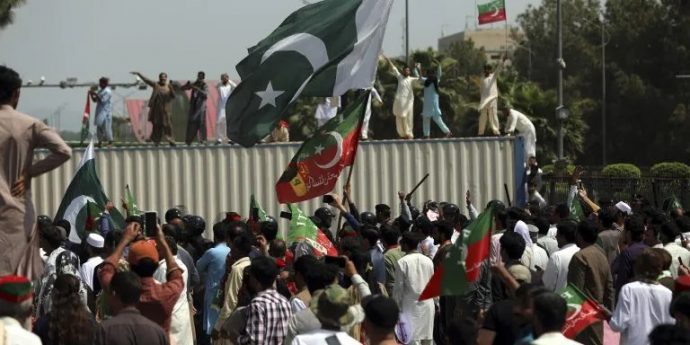
Education Amidst Political Instability: Ensuring Continuity
Introduction
Ever since we have grown up, we have seen that the people of Pakistan have undergone a constant political struggle. In fact political instability is a challenge which has not just affected Pakistan but also many nations around the world. Political instability brings many setbacks with it and amongst impacting many sectors under work, education sector has been seen to have been affected the most. In developing countries like Pakistan, this navigation in the turbulent waters seem to affect the continuity and quality of education. There is a continuous struggle to ensure that there is uninterrupted learning amid such chaos as it remains a pressing concern for policymakers, educators, and the population at large. This article would bring into light how is the education sector continues to work despite the challenges when there is political instability in the country.
The Impact of Political Instability on Education
Political instability means that there is a constant political unrest in the country, the governance is changed frequently and mostly there are socio-political conflicts which disrupts the education system of the country. These disruptions from the political turmoil are manifested in various forms, such as school closures, strikes, traffic jams due to these strikes causing schools to close, funding cuts, budget misallocations and curriculum changes as influenced from political motives. There is a constant air of uncertainty that stems from this political instability and this directly hampers the smooth functioning of the educational institutions hence adversely affecting the learning outcomes of the students.
Challenges Faced by Educational Institutions
Educational institutions face many challenges in the wake of the political turmoil and instability. One of the most common outcomes of political instability or as we can say a setback, comes in when financial uncertainties are resulting from budget cuts which disrupts the development of infrastructure, procurement of resources and staff salaries. I have witnessed many times that the teachers of government schools have been complaining about missing salaries over quite some time during the times of political turmoil. In addition to this, when there are frequent changes in the educational policies because of opposite views of the politicians, it creates confusion and thus impacts the long term planning and curriculum consistency. One example of this was that during the times of PTI government, the Single National Curriculum was introduced, but when that government fell down and the new one came, the SNC program was almost rolled back and forgotten about. This shows the lack of consistency in policies, which ultimately affects the students in the education system.
Ensuring Continuity in Education
Despite these challenges, various strategies can help mitigate the impact of political instability on education. Politicians and educationists need to understand that their political differences and opposed viewpoints could only have a negative impact on the growth of the education system of Pakistan. Therefore, it is essentially important to building resilient educational systems that are adaptable to changes in governance. Establishing emergency protocols for temporary closures and alternate learning methods, such as e-learning platforms or online education could sustain education during political crises.
Community involvement and civil society engagement also plays a pivotal role during these times of political upheaval. The community support networks can aid in sustaining educational initiatives by providing temporary facilities, volunteer teaching or providing some kind of teaching or educational resources. Collaborative efforts between government bodies, NGOs, and community leaders can help bridge gaps caused by political disruptions.
Conclusion: Securing the Future through Uninterrupted Learning
In conclusion, political instability is not a very new concept and it poses formidable challenges to the education in Pakistan. However, by adopting proactive measures, fostering community engagement and advocating for educational stability, continuity in learning can be ensured. The resilience of educational institutions and the commitment of stakeholders to prioritize education amidst political turmoil is crucial for securing a brighter future for the nation.

Content writer, educationist, teacher, researcher, social media manager, and a SEO manager from lahore. She has been working as a freelance academic and non-academic writer for more than 10 years now. She has a passion to learn new things and has a knack for writing and she combines both things to produce write ups she pours her heart out in.

